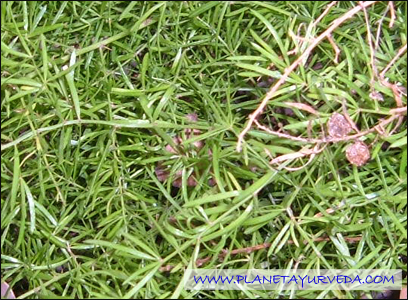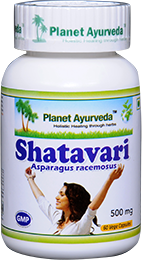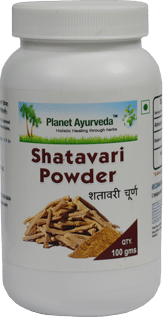CAN SHATAVARI BE TAKEN BY MEN AND SHATAVARI BENEFITS FOR MEN

INTRODUCTION
Shatavari is also known as “Wild Asparagus”. This herb is used for many issues for centuries. It helps in increasing the vital fluids in the body. It also helps to promote strength and healthy energy levels. It acts as a digestive soother, reproductive tonic for both men and women. This herb also helps in coping with stress if one adapts it in his their life.
DESCRIPTION
It is a perennial climbing plant, extending to a height of 1-2 meters. It has straight and hooked spines. Young stems are brittle and delicate in nature. Shatavari is a bitter and sweet herb. Roots are radish shaped, white tuberous, found in clusters and tapered at one end. Flowers are white in color, with small spikes, having fragrance. Leaves are like pine needles and are thin. Fruits appear purple to black in color, in the form of small berries. Older plants have thicker and longer roots.
CHEMICAL CONSTITUENTS
Its chemical constituents are:-
- Root – Asparagamine A, Sarsapogenin, Two furostanolicsponins, Two spirostanolic, Sitosterol
- Leaves – Rutin, Flavonoids
- Fruits – Asparamins A and B, Sarsasapogenin, Diosenin, B-Sitosterol
CLASSIFICATION
- Kingdom – Plantae
- Family – Asparagaceae
- Genus – Asparagus
- Species – Asparagus racemosus
- Order – Asparagales
- Subkingdom – Tracheobionta
HABITAT
Mainly it is found in Asia (the Himalayas, India, Nepal, Pakistan, Sri Lanka, Africa and Australia). In India, it is mainly found in West Bengal, Tamil Nadu, Kerala, Karnataka, Andhra Pradesh, Odisha and Gujarat. It is mainly found in tropical and subtropical forests. Light, medium and heavy soils are needed for this plant.
NAMES
- Hindi Name – Shatavari
- English Name – Wild Asparagus, Buttermilk Root, Climbing Asparagus,
- Bengali Name – Sainsarbel,Satamuli, Dogri,Satmooli, Shatavar
- Arabic Name – Shaqaqul, Shakakul
- Marathi Guajarati Name – Satavari
- Nepalese Name – Kurilo
- Konkani Name – Satavari
- Urdu Name – Satawar
- Chinese Name – Tian Men Dong
- Gujarati Name – Shatavari
- Kannada Name – MajjigeGadde
- Punjabi Name – Chhotta Kelu
- Malayalam Name – Sathavari
- Tamil Name – Sadavare
- Oriya Name – Vari, Pali
- Manipuri Name – Nunggarei
- Assamese Name – Satomul
AYURVEDIC PROPERTIES
This plant has the following Ayurvedic properties:-
- Rasa (Taste) – Tikta (Bitter), Madhura (Sweet)
- Virya – Sheeta(cool potency)
- Guna – Snigdha, Guru
- Physical Property – Oily, Heavy
- Vipaka – Madhura
SHATAVARI BENEFITS
Shatavari has the following benefits:-
- It helps in maintaining a healthy female reproductive system.
- It helps to keep healthy levels of female breast milk production.
- It helps to support the immune system.
- It helps to support the already balanced female hormones.
- It has natural antioxidant properties.
- It also supports the male reproductive system.
- It helps in maintaining healthy peristalsis of bowels.
- It promotes strength and healthy energy levels.
- It has a soothing effect on the digestive tract.
SHATAVARI USES
Shatavari is mainly used to treat Vata and Pitta doshas but it is heavy in nature due to which it can increase Kapha. It has a cooling effect on the system due to its bitter and sweet taste. It has a grounding and nourishing property due to its oily nature. These all properties on combining make it a rasayana (rejuvenative) for the blood, the digestive system (particularly when pitta is involved) and Reproductive system (mainly female reproductive system).
MEDICINAL PROPERTIES
Its medicinal properties are as follows:-
- Anticancer
- Antidepressant
- Antimicrobial
- Anti-candida
- Anti-diabetic
- Anti-inflammatory
- Anti-diarrheal
- Anti-oxidant property
- Anti-ulcerogenic
- Immunomodulatory activity
CAN SHATAVARI BE TAKEN BY MEN?
Yes, its benefits are not only limited to the female reproductive system, but Males can also get its benefits. It is equally favorable for the male reproductive system. It is also known as “the many heired”, which means it has a good ability to support healthy sperm production, support healthy reproductive hormones and it also has good ability to support fertility.
SHATAVARI BENEFITS FOR MEN
Its benefits are as follows:-
- Shatavari helps in increasing reproductive hormones.
- It acts as a rejuvenating tonic for the male reproductive system.
- It helps to reduce male sexual problems.
- It helps to correct impotency.
- It supports and also helps in increasing the healthy sperm count.
- It reduces the inflammation of male genital organs.
HOW TO TAKE SHATAVARI?
It can be taken in the form of Powder, Capsule, Tablet or liquid. Most commonly it is taken in the powder form with warm milk, honey and ghee to increase the effect and absorptivity of the herb. Capsule and tablet form can be used as beneficial supplements and is easy to consume and carry. Other classical formulations which can be used are Shatavari ghee or Ghrita (Shatavari in clarified butter), Shatavari guda or jam (Avleh) and Mahanarayan tail (oil), which contains Shatavari powder as one of its ingredients.
- Shatavari Powder (dried root) – It can be taken in the morning and at night after meals with warm milk or warm water. Dosage: 3-6 grams per day.
- Shatavari Guda (Avleh/Jam) – It can be taken in the morning and at night after meals with warm milk or warm water. Dosage: 6 grams per day.
- Shatavari Ghee or Ghrita – It can be taken in the morning and at night after meals with warm milk or warm water. It should be taken after warming the milk or water. Dosage: 12 grams per day.
SHATAVARI AND INFERTILITY IN MALES
Research has shown that Shatavari is a good health tonic for both male and female reproductive system. Now a days, 10-15% couples are suffering from Infertility. It helps to overcome various sexual disorders. In males, it is very effective in treating premature ejaculation, lack of desire and erectile failure. It also enhances male sexual activity. Its aphrodisiac property is due to the presence of various carbohydrates, phytochemicals, saponins and glycosides.
CONCLUSION
Shatavari is a very useful plant. It serves its uses to both men and women. It also benefits the men in various ways so men can also have this herb. It is known as “Queen of herbs”.
“Ayurveda teaches us to cherish our innate-nature – “to love and honor who we are”, not as what people think or tell us, “Who we should be.” – Pranagogia





